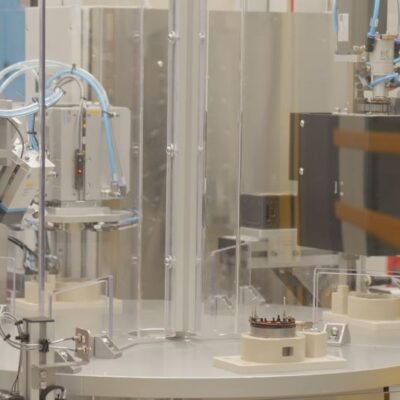Test benches in industrial production
Automatic test benches represent one of the most effective solutions to ensure product compliance with required standards
Technological evolution has revolutionized the world of industrial production, introducing increasingly sophisticated tools aimed at optimizing efficiency, reducing costs, and improving product quality. Among these innovations, automatic test benches (or automatic testing systems) play a crucial role, as they represent one of the most effective solutions to ensure product compliance with required standards.
These systems are designed to perform tests and inspections on components, devices, or finished products without the need for human intervention during the process. They can be programmed to carry out a wide range of tests, such as electrical parameter measurements, functional checks, resistance tests, and much more. The primary goal is to identify any defects or anomalies in the products before they are released to the market.
Increased Quality and Reliability: One of the main benefits of using automatic test benches is the significant reduction of human errors. Tests are conducted precisely and consistently, ensuring that every product is inspected according to the same standards. This leads to an increase in the quality of the final product and a reduction in scrap rates.
Operational Efficiency: Automatic testing systems can operate continuously for long periods, thereby improving productivity. Automation allows for testing a larger number of products in shorter times compared to manual methods. Additionally, thanks to their ability to process large volumes of data in real-time, automatic test benches enable companies to quickly identify production issues and take timely corrective actions.
Cost Reduction: Although implementing automatic test benches requires a significant initial investment, the long-term benefits far outweigh the costs. Increased efficiency and reduced defects lower expenses related to repairs, returns, and production interruptions. Furthermore, automation helps save on labor costs by reducing the need for specialized personnel for testing.
Flexibility and Adaptability: Automatic test benches can be programmed and updated to adapt to new production needs, making them extremely flexible tools. This adaptability is particularly useful in constantly evolving sectors such as electronics and automotive, where product requirements frequently change.
Despite the numerous advantages, the implementation of automatic test benches also presents some challenges. The complexity of designing and programming these systems requires specific skills and careful planning. Additionally, maintaining and updating these systems can incur further costs and require specialized personnel.
Another aspect to consider is the integration of automatic test benches into the existing production flow. It is essential that the systems are compatible with other equipment and production processes to avoid bottlenecks and maximize efficiency.
The adoption of automatic test benches in industrial production represents a significant leap forward in improving quality, efficiency, and profitability for companies. Although there are challenges associated with implementing these systems, the long-term benefits make the investment highly advantageous. With the continuous evolution of technology, automatic test benches will become increasingly indispensable for companies aiming to remain competitive in a rapidly changing global market.

